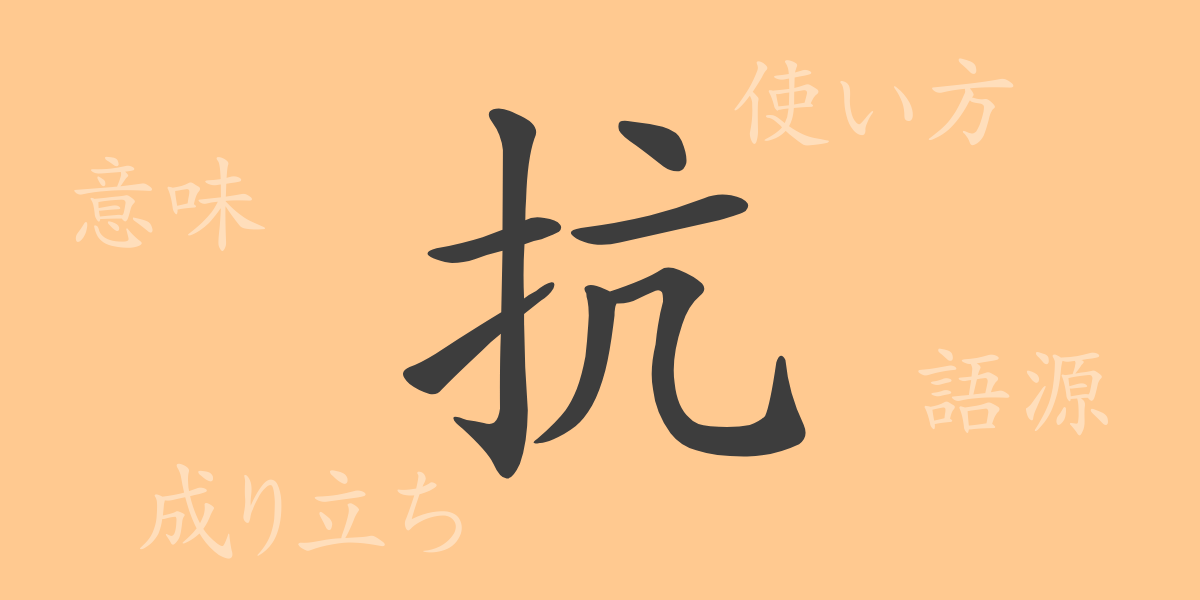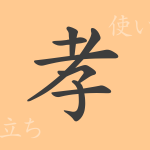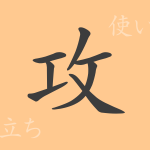Japanese kanji have a rich history and unique meanings. The kanji “抗(こう)” is frequently seen in daily life, but we may not often delve into its background and various uses. In this article, we will explore the origins of “抗(こう),” its meanings, usage, readings, and the idioms and phrases that contain this kanji. Let’s dive deep into the world of “抗(こう)” and uncover its full scope.
Origins of 抗(こう)
The kanji “抗(こう)” has its roots in ancient Chinese oracle bone script. Initially, it evolved from a pictograph representing a hand lifting something. Over time, it came to signify resistance and opposition, and was later adopted into the Japanese language as one of the common kanji. “抗(こう)” symbolizes strength in standing up against force and embodies an unyielding spirit, making it a powerful character in various contexts.
Meanings and Usage of 抗(こう)
The kanji “抗(こう)” means “to oppose,” “to resist,” and “to fight against.” These meanings represent the act of confronting something with one’s will or strength, often in negative or challenging contexts. Additionally, in medical terms, it appears in words like “抗体(こうたい, antibody),” which signifies the body’s resistance to disease.
Readings, Stroke Count, and Radical of 抗(こう)
The basic information about the kanji “抗(こう)” is as follows:
- Readings: The on-yomi (Chinese reading) is “コウ(こう),” with no specific kun-yomi (Japanese reading).
- Stroke Count: 7 strokes
- Radical: The radical is 手(てへん, hand).
Idioms, Phrases, and Proverbs Using 抗(こう)
Here are some idioms and phrases that include “抗(こう)”:
- 抗議(こうぎ): To formally express dissatisfaction or objection.
- 抗戦(こうせん): To challenge an enemy to fight.
- 抗菌(こうきん): To inhibit the growth of bacteria.
- 抗体(こうたい): A protein produced in the body to counteract foreign antigens like pathogens.
- 抗力(こうりょく): Resistance force, either physical or mental.
These idioms and phrases are used in both everyday and specialized contexts, strongly reflecting the fundamental meaning of “抗(こう)” as “to oppose.”
Conclusion on 抗(こう)
The kanji “抗(こう)” expresses the strength of will to stand up against something, as its form suggests. In Japanese, “抗(こう)” is often found in words that convey nuances of opposition and resistance, utilized across various societal contexts. In the medical field, it plays a crucial role in terms like “抗体(こうたい, antibody),” representing resistance to disease. The presence of “抗(こう)” is deeply embedded in our lives, signifying its profound importance.

























